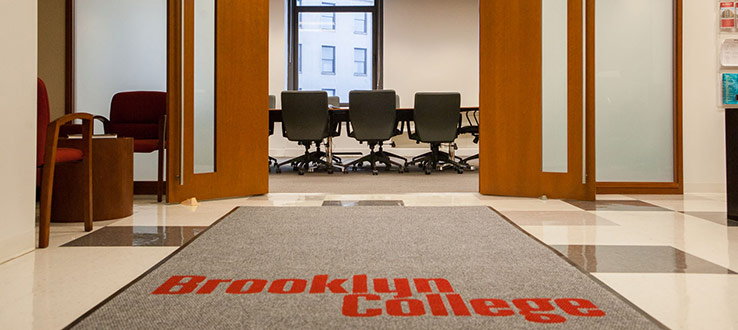Center History
The Graduate Center for Worker Education (GCWE) at Brooklyn College follows a long tradition of education and advocacy for working people across New York City. Founded in 1981 in cooperation with local labor and civic organizations, the GCWE has always had an idealistic mission: to provide programming of interest and value to working people and to prepare students for leadership roles in their communities and organizations. In addition, the center has consistently sought to offer programming designed to complement the personal and professional obligations of working students.
Though the New York City labor movement provided the center's first partners, the GCWE has always endeavored to reach a broad audience of working New Yorkers. The center's success is reflected in the distinguished graduates of its programs, remarkable visiting scholars program, and an array of highly regarded conferences. New York City Council member Jumaane Williams, 58th Assembly District Committeeman Cory Provost, New York State Senator Kevin S. Parker and Director of Diversity, Equity and Compliance for the Massachusetts Department of Public Health Patrick Damas are among the many graduates who count the center as key to the success of their civic careers.
Belle Zeller visiting professors—invited to the center to serve as catalysts for scholarly dialogue about national and international issues of civil rights and social justice—have included Nelson Stanley, Juan Gonzalez, Bill Fletcher, Gary Younge, and Lisette Nieves. Notable conferences hosted by the center include Black Women and the Radical Tradition (keynote by Angela Davis); New Solutions—Green Jobs; and, most recently, the annual meeting of the Labor and Working Class History Association. All of these have generated considerable energy and stimulated substantive scholarship.
The center continues in this robust and dynamic tradition, most notably in its current work in the field of economic democracy. Adhering to its historical mission to be an intellectual resource to working-class issues and concerns, the center offers monthly talks on the topic of economic democracy and hosts two faculty fellows with interests and activities in the field.







